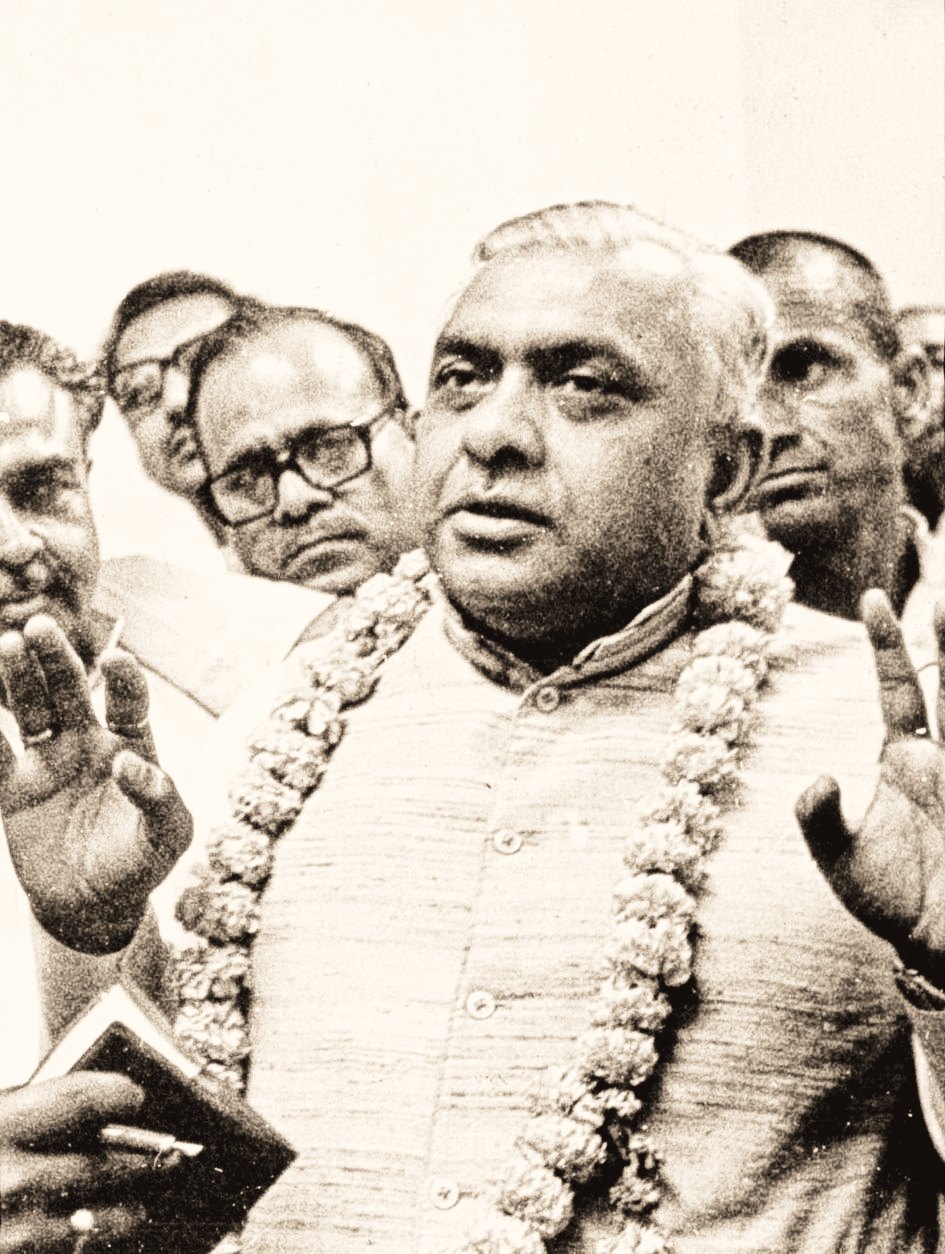
Lalit Narayan Mishra
New Delhi, Dec. 8: A Delhi court today finally pronounced its verdict in the case pertaining to the January 1975 assassination of then railway minister Lalit Narayan Mishra, convicting four Ananda Margis - one of them an advocate - for the conspiracy and murder.
The case, one of the most long-drawn in India's legal history, meandered for close to 40 years and was heard by some 20 judges through the decades.
Those held guilty of murder, which shook up India in the run-up to the Emergency of 1975, are Santoshananda Avadhuta (75), Sudevananda Avadhuta (79), Gopalji (73) and advocate Ranjan Dwivedi (63). They are at present on bail.
District judge Vinod Goel convicted the four under IPC sections 302 (murder), 120-B (criminal conspiracy), 326 (voluntarily causing grievous hurt by dangerous weapon or means) and 324 (voluntarily causing hurt), besides the Explosive Substances Act. The judge will pronounce the quantum of punishment on December 15.
The convicts could face life imprisonment for the assassination, which, according to the CBI, was part of a conspiracy hatched by the Anand Margis to destabilise India after their founder-member Anand Murthi was investigated for alleged criminal offences.
Mishra was wounded in a bomb blast at the Samastipur railway station in north Bihar on January 2, 1975, and succumbed to his injuries a day later. He is the only central cabinet minister to have been assassinated in post-Independent India.
Two others perished in the explosion - Surya Narayan Jha and Ram Kishore Prasad Singh. Also, 25 people were injured, among them Mishra's brother Jagannath Mishra, who was offered the Bihar chief minister's chair by the Congress soon after the assassination as a gesture of 'appeasement'.
Today's verdict was pronounced in a jam-packed room in the presence of Mishra's grandchildren and relatives of those convicted, including the wife of Dwivedi and the daughter of Gopalji.
Dwivedi, who as a 24 year old was the youngest of the four accused in 1975, tried to put up a brave face. 'We have also become strong at this moment of distress,' said the advocate, whose family is settled in the US.
Two other convicts - Sudevananda and Gopalji - refused to comment on the outcome of the case but the third, Santoshananda, said they were the victims of a 'political conspiracy'.
'Our fight will go on. This judgment is not based on law and facts. We have been victims of political conspiracy and this will be exposed in higher courts,' he said.
The case meandered for 40 years as the accused at various stages sought adjournments and moved the Supreme Court and high courts, raising various contentions.
In August 2012, the Supreme Court dismissed the plea of the accused for quashing the case on the ground of long delay, lamenting the fact that 'our legal system had made life too easy for criminals and too difficult for law-abiding citizens'.
The apex court said the accused could not take advantage of their own actions of delaying the trial and seeking quashing of the same on the ground of long delay.
Advocate M.L. Lahoty, who appeared for the accused in the Supreme Court, said that at various other stages, over 200 witnesses, including 150-odd prosecution ones, were examined in the case. The CBI had filed the chargesheet in the case on November 1, 1977, in a Patna court but the trial was subsequently shifted to Delhi.
Three of the convicts in the case - Dwivedi, Santoshananda and Sudevananda - are also accused in the case pertaining to the 1975 attempt on the life of then Chief Justice of India A.N. Ray in New Delhi. Justice Ray had at that time declined to grant bail in a criminal case to Ananda Murthi. But he escaped unhurt in the attack on Bhagwandas Road outside the Supreme Court on March 20, 1975.
While the two Ananda Margis were each awarded 10 years' rigorous imprisonment, Dwivedi was sentenced to a term of four years. However, Delhi High Court acquitted Dwivedi while sustaining the conviction against the other two. Their appeal is now pending in the Supreme Court.











